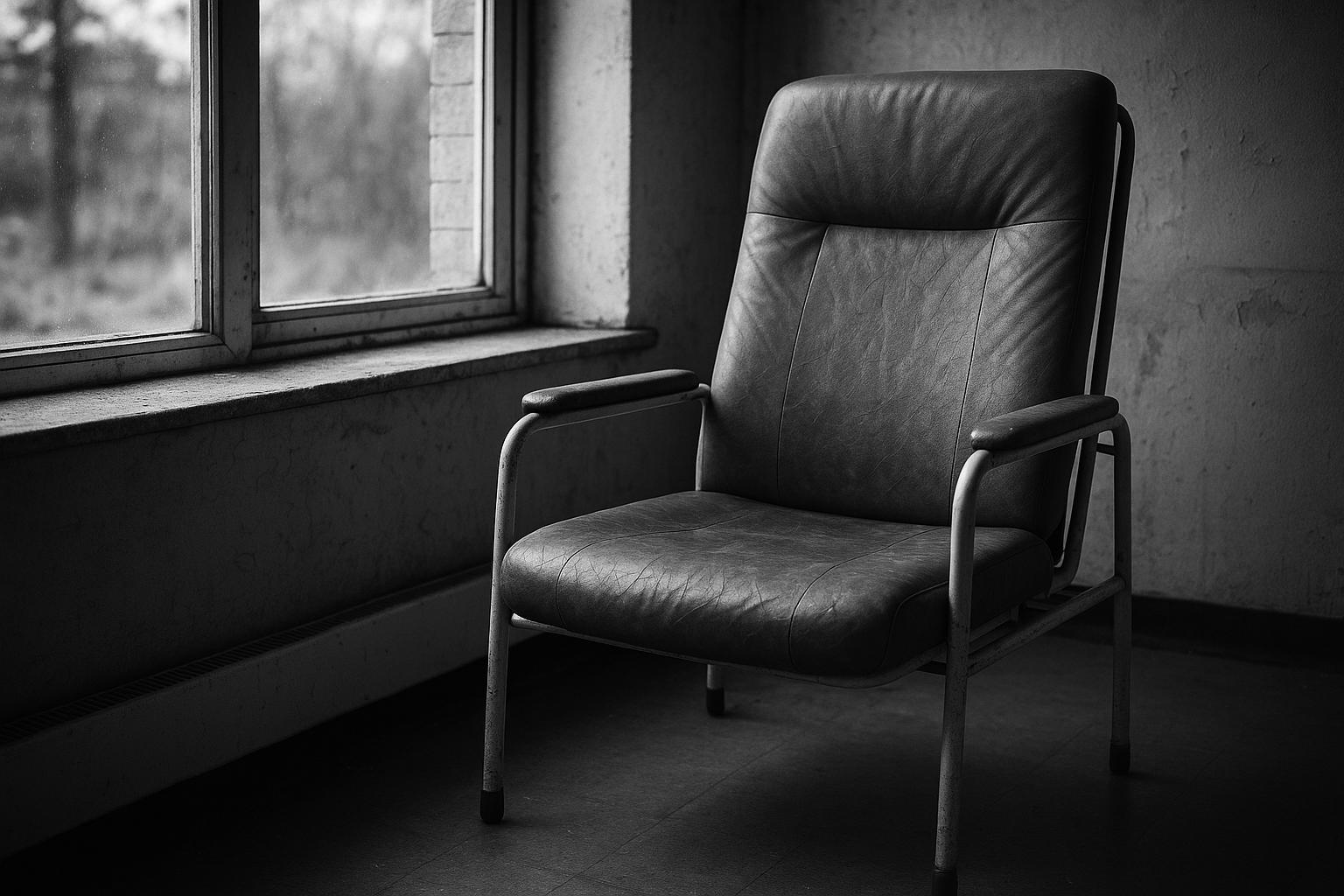A 70-year-old man from Birmingham is confronting a devastating battle against a malignant facial tumour that has been allowed to progress unchecked for years, revealing significant gaps and rigidities in NHS treatment protocols. Sergei Ouvarov, a retired auto mechanic, suffers from basal cell carcinoma, a type of skin cancer that initially manifested on his cheek in 2019. Despite undergoing radiotherapy that initially reduced the tumour, his follow-up care was severely disrupted by the Covid-19 pandemic, leaving the cancer to aggressively spread across his face, invading critical areas including his eye, nose, and potentially the bone. With NHS guidelines blocking access to an innovative drug, vismodegib, which could shrink the tumour, Mr Ouvarov and his medical advocates are urgently pressing for policy changes.
Dr James Wilson, a private oncologist now overseeing Mr Ouvarov's care, has criticised the NHS restrictions on vismodegib, a targeted oral medication that blocks the Hedgehog signaling pathway involved in many basal cell carcinomas. He describes the current guidelines as "far too rigid" and lacking "clinical discretion" or "humanity." Under existing National Institute for Health and Care Excellence (NICE) recommendations, vismodegib is only approved for patients with multiple tumours or metastatic disease, not for single tumours, no matter how destructive. This leaves patients like Mr Ouvarov, whose tumour is single but progressively debilitating, without potentially lifesaving pharmaceutical options. Dr Wilson emphasises that vismodegib, despite its considerable cost of about £8,000 a month, may be the only viable hope for patients who cannot undergo surgery or radiotherapy.
The impact of the NHS’s inflexible policy has caused anguish and frustration for the Ouvarov family. Sergei’s daughter, Mariya Ouvarova, has lodged a formal complaint against the NHS care team at Queen Elizabeth Hospital in Birmingham, citing five years of neglect, broken promises, and failures. Mariya recounts being promised follow-up care after the initial radiotherapy in 2019, which was never delivered due to the pandemic. When Sergei finally received attention again in 2024, the cancer had dramatically worsened. Promised surgeries were cancelled due to missed pre-operative assessments, and chemotherapy was repeatedly delayed or deemed unsuitable due to his kidney function. The family’s experience paints a picture of systemic failings compounded by bureaucratic hurdles and clinical inflexibility. By May 2025, with no effective NHS treatment offer forthcoming, they sought help privately.
Basal cell carcinoma is the most common form of skin cancer in the UK, with approximately 600 melanoma eye cases diagnosed annually. While the majority of early-stage basal cell carcinomas can be treated effectively with surgery or radiotherapy, advanced cases like Mr Ouvarov’s present complex challenges. Vismodegib, marketed as Erivedge, is a revolutionary drug that received FDA approval in 2012 as the first to target molecular pathways specific to basal cell carcinoma. Clinical trials published in the Journal of Clinical Oncology have demonstrated promising efficacy, with significant tumour response rates in patients with advanced or metastatic basal cell carcinoma. Nevertheless, NICE’s assessment in its 2017 guidance concluded that evidence was limited regarding overall survival benefits and cost-effectiveness, leading to a recommendation against routine NHS funding for most patients.
According to NICE’s guidance documents, vismodegib is typically reserved for symptomatic metastatic basal cell carcinoma or locally advanced disease not amenable to surgery or radiotherapy. The technology appraisal acknowledges the drug’s utility but highlights cost-effectiveness concerns, with an estimated price exceeding £30,000 per quality-adjusted life year gained. Patients already receiving vismodegib at the time the guidance was issued were allowed to continue treatment, but new cases like Mr Ouvarov’s are generally excluded from access. The institute states that its guidelines can be reviewed should new evidence arise that might impact clinical outcomes or cost evaluations.
Currently, patients with basal cell carcinoma are offered a limited range of treatments within the NHS framework, which some experts now argue is insufficiently adaptable for exceptional or disabling single-tumour cases. The rigid criteria do not permit clinician discretion, limiting personalised approaches based on the severity and spread of individual tumours. This case has prompted calls from Dr Wilson and the Ouvarov family for the government and NICE to reconsider the guidance, allowing exceptional access for cases where the tumour is singular but life-threatening or seriously debilitating.
The human cost of these policy limitations is starkly illustrated by Mr Ouvarov’s condition. His tumour now leaks blood and fluid continuously, causing severe pain and emotional distress; he has become housebound, ashamed, and socially isolated. His daughter Mariya highlights the psychological toll, describing her father’s depression and the exhausting battle the family has endured seeking care and answers. The complaint submitted to Queen Elizabeth Hospital has been acknowledged with a promise of a response within 30 days, but the family remains caught in limbo.
This case underscores broader challenges in balancing innovative cancer treatments' clinical benefits with their financial and evidential constraints within national healthcare systems. It also reflects the pandemic’s disruptive impact on routine cancer follow-up and management, with consequences still emerging years later. While NICE’s cautious approach is grounded in evidence appraisal and resource stewardship, critics argue that more flexible, compassionate pathways are urgently needed to prevent patients like Mr Ouvarov from being left behind.
📌 Reference Map:
- Paragraph 1 – [1], [4]
- Paragraph 2 – [1], [2], [5]
- Paragraph 3 – [1], [4], [6]
- Paragraph 4 – [1], [2], [3], [5]
- Paragraph 5 – [2], [3], [4], [5]
- Paragraph 6 – [1], [4]
Source: Noah Wire Services
